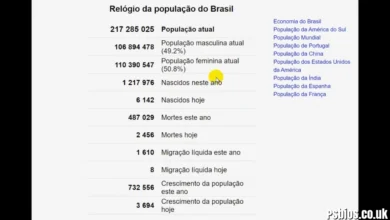Landbouw Economisch Instituut (LEI): Netherlands’ Agricultural Economics Institute Explored

The Landbouw Economisch Instituut (LEI)—translated as the Agricultural Economics Institute—has been a cornerstone of Dutch agricultural policy, research, and economic analysis. Over many decades, LEI played a crucial role in collecting, analyzing, and advising on data and trends in farming, horticulture, fisheries, and rural development. Though its name has evolved over time, its legacy continues under the umbrella of Wageningen University & Research, specifically in what is now called Wageningen Economic Research and more recently Wageningen Social & Economic Research (WSER).
In this article, we’ll cover:
-
LEI’s historical origins and evolution
-
Its key research areas and approaches
-
Its role in shaping policy and supporting the agricultural sector
-
Major publications and data contributions
-
Changes & current structure under WSER
-
Challenges and the future of agricultural economic research in the Netherlands
History & Evolution: From Inception to Present
The LEI was officially founded in 1940 by the Koninklijk Nederlandsch Landbouwcomité (Royal Netherlands Agricultural Committee). Its purpose was to gather objective economic data for the agricultural sector (agriculture, horticulture, fisheries), to support both farmers and government.
Key milestones include:
-
1937–1940: Pre-founding archival activity; discussions to form a body for agricultural documentation and economic analysis.
-
Post-1940: The LEI undertakes research in market behavior, price policy, business economics, structure and financing of agriculture and fisheries. It becomes an institution jointly supported by organized agriculture and government.
-
1970s–1990s: As Dutch and European agricultural policies evolve, LEI’s role grows. It becomes more integrated with government policy processes and international trade/regulation issues.
-
2016: LEI, together with other research units at Wageningen, rebranded under the umbrella of Wageningen University & Research (WUR), as Wageningen Economic Research
-
2025: A recent merger led to the formation of Wageningen Social & Economic Research (WSER), combining economic research functions with development innovation departments.
Through this evolution, LEI has shifted from a more narrowly agricultural economics institute to a broader socio-economic research body, still deeply engaged with agriculture but also food systems, rural development, sustainability, and environmental economics.
Key Research Areas & Approach
LEI / its successor institutions have worked across multiple domains. Their research areas and approaches include:
-
Market, trade, and price policy
LEI has long analyzed how domestic and international markets affect Dutch agriculture: prices, trade flows, import/export policies, responses to international competition -
Farm & business economics
This includes cost and revenue analyses, profitability of farms, comparisons across farms, benchmarking, and economic decision-making at farm level. LEI collected detailed book-keeping records from many farms for this purpose. -
Structural and organizational studies
Studies on the structure of agriculture (size of farms, specialization vs diversification), financing, investment behavior, and how agricultural businesses adjust to policy changes -
Fisheries & horticulture
In addition to standard crop and livestock agriculture, LEI has researched fisheries economics (processing, marketing, regulation) and horticulture (greenhouse production, vegetable market). -
Regional / sociographic / rural studies
LEI has also done regionally differentiated studies, sociographic studies of rural populations, comparative regional performance, often with data collected locally. -
Policy evaluation & advisory role
Perhaps one of LEI’s most important roles has been not just research, but translating that research into policy advice: for national agricultural policy (price supports, subsidies), EU Common Agricultural Policy (CAP), environmental regulation, food supply issues.
The approach is characterized by strong data collection (farm book-keeping, surveys, statistics), rigorous economic analysis, and publication of reports and periodicals that are meant both for policymakers and for the agriculture sector itself.
Role & Impact: Policy, Government & Agricultural Sector
LEI’s influence in Dutch agricultural governance and sector development has been considerable. Some of its key impacts:
-
Data underpinning policy: LEI’s analyses inform the Dutch government’s agricultural policy, including subsidy design, market regulation, cost-price support, trade negotiation.
-
Economic reports: The Landbouw-Economisch Bericht (Agricultural Economic Report) is an annual report compiled by LEI that tracks sector performance, trends, risks, gives projections. It is commissioned by the government to guide policy.
-
Supporting farmers and businesses: Through farm-economic benchmarking, cost-price studies, and business-economics research, LEI helps individual farmers and horticultural enterprises understand profitability, risk, and best practices.
-
International trade and regulation: LEI contributes to discussions of EU policy, global market trends, trade agreements, and the effects of import/export policies on the local agricultural economy.
-
Public information & transparency: Through its publications (reports, statistical bulletins), LEI helps farmers, industry, media, and the public understand trends (prices, consumption, costs, environmental impacts).
Thus, LEI has served as a bridge between academic economic research, government decision-making, and the realities of agricultural businesses in the Netherlands and beyond.
Major Publications & Data Contributions
LEI’s reputation rests heavily on its publications, datasets, and archival materials. Here are some highlights:
-
Landbouw-Economisch Bericht (LEB): The annual report tracking agricultural economics in the Netherlands, including sectoral output, input costs, trade data, farm economics, etc. It is widely used by stakeholders.
-
LEI Rapport series: Many specific reports touching on trade, comparative agriculture (even international case studies such as the Canadian grain sector), market analyses, structural changes.
-
Publications such as “Landbouw-Economisch Bericht”, “Landbouw-economisch bericht” (a periodical bulletin), and internal reports / “bedrijfseconomisch onderzoek” (business economics research) are part of LEI’s output.
-
Archival collections: The LEI’s archives (since 1937–40) include foundational documents, surveys, statistical and economic analyses, internal memos. These are preserved in the Nationaal Archief, The Hague.
These outputs give depth and continuity to LEI’s research, allowing trend analysis over decades—a valuable resource for researchers, policymakers, and academics.
Current Structure & Transformation into WSER
The LEI name itself has changed over time; its functions have been subsumed into larger research structures at Wageningen University & Research. Key points:
-
Wageningen Economic Research was the name used post-2016 for LEI when it was brought fully under the WUR umbrella.
-
As of 1 January 2025, Wageningen Economic Research merged with Wageningen Centre for Development Innovation to form Wageningen Social & Economic Research (WSER). This new structure broadens the scope to include social, economic, rural development, sustainability, and innovation in food and agricultural systems.
-
LEI / WSER is headquartered in The Hague, with strong ties to both government and organized agriculture (farmers’ associations, horticulture), and continues collaborating with EU bodies and international partners.
The transformation into WSER reflects changing challenges: climate change, sustainability, food security, supply-chain disruptions. The research agenda has gradually shifted to include not just “how much is produced / price” but resilience, environmental impacts, consumer trends, and global developments.
Challenges & Outlook for Agricultural Economic Research
Even with its strong legacy, LEI / WSER confronts challenges—and there are important questions ahead.
Key Challenges
-
Data collection & representativeness: Maintaining consistent, accurate farm-level data over time is demanding, especially as agricultural practices diversify (organic, precision agriculture, etc.).
-
Balancing sector productivity with sustainability: Economic growth in agriculture must increasingly be weighed against environmental constraints (carbon footprint, biodiversity, water use).
-
Policy complexity and internationalization: EU CAP policy, global trade agreements, environmental regulation impose complex layers that researchers must model.
-
Adapting to global shocks: Supply-chain disruptions, changing climate, pandemic risks, changing input costs (e.g. energy, fertilizer)—all require dynamic research and rapid policy input.
-
Communicating science to stakeholders: Farmers, policymakers, consumers need accessible interpretations; miscommunication or oversimplification risks misinformed policy or public misunderstanding.
Future Directions & Opportunities
-
Integration of sustainability indicators: Carbon accounting, animal welfare metrics, ecosystem services integrated into economic models.
-
Use of big data, remote sensing, precision agriculture data: Better, more timely info can feed economic models and forecasts.
-
Focus on climate adaptation & resilience: How agriculture can adapt to weather extremes, soil degradation, water scarcity.
-
Food systems approach: Connecting production economics with consumption, health, food waste, supply chain emissions.
-
International collaboration & comparative studies: Learning from and comparing with other countries’ agricultural performance under similar pressures.
If these areas are successfully developed, LEI / WSER can continue to be a leading voice globally in agricultural economic research.
Conclusion
The Landbouw economisch Instituut (LEI) has been a foundational institution in the Netherlands for agricultural economics: from its origins in 1940 to its modern evolution into Wageningen Economic Research and now WSER, it has blended data, analysis, and policy advice to support agriculture, fisheries, and rural economies. Its strong tradition of reporting, farm economics, market analysis, and policy influence make it an indispensable part of the Dutch agricultural landscape.
Going forward, LEI / WSER’s ability to adapt—to integrate environmental sustainability, to handle global shocks, to use modern data tools, and to communicate clearly—will determine how well it meets the challenges of the 21st century. For researchers, farmers, policymakers, and anyone interested in food systems, LEI’s work remains essential.
If you like, I can pull together a list of recent LEI / WSER reports or case studies, especially in sustainability or climate policy, to give you concrete examples.




